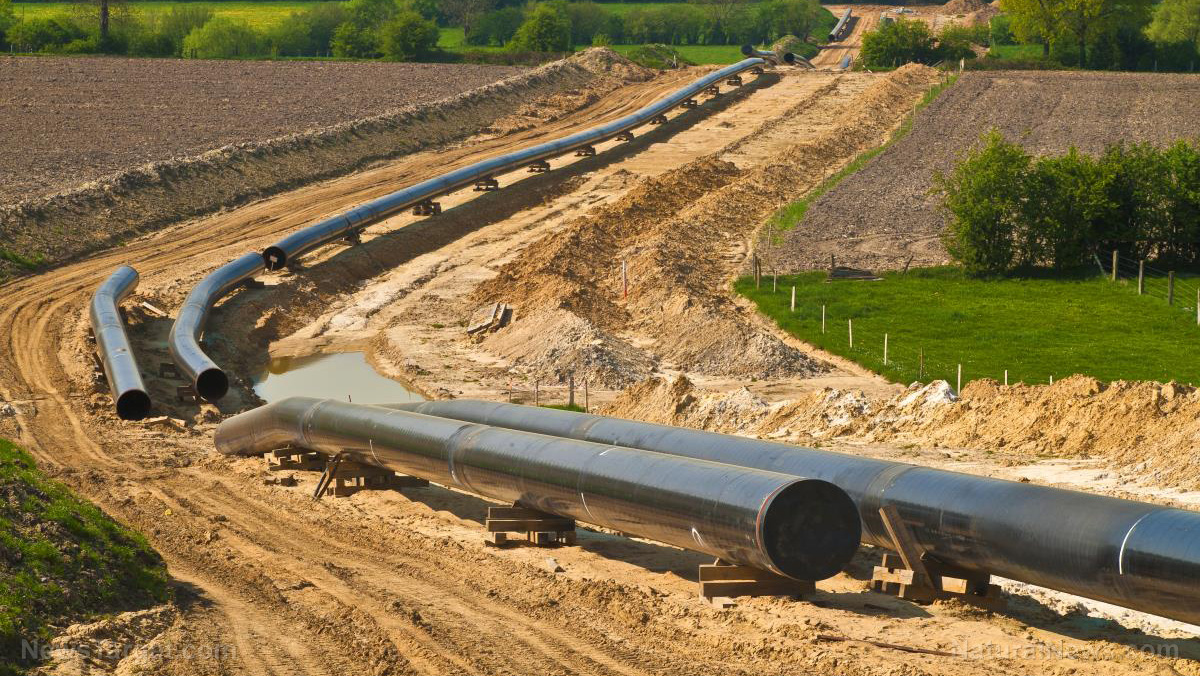
As Russia’s invasion of Ukraine rages on, several major American gas and oil industry groups are urging the Biden administration to boost the production of domestic energy.
Last week, the price of oil surpassed $100 per barrel, a milestone that hasn’t been seen in nearly eight years, in response to Russia’s offensive against Ukraine. This has a major influence on gas prices for fossil fuel companies, and the American Petroleum Institute’s President and CEO, Mike Sommers, said that it’s time to focus on American energy leadership.
The API is one of the nation’s biggest gas and oil industry groups, representing roughly 600 energy firms. After condemning the invasion, Sommers noted the crucial role that U.S. oil and natural gas producers play in supporting European allies with access to affordable and dependable energy.
He added: “With both geopolitical tensions and energy costs rising, American energy leadership can serve as a stabilizing force while strengthening global energy security. Our industry is committed to working with the administration to do everything possible to minimize any impacts on U.S. consumers while supporting our allies overseas.”
Meanwhile, another industry group, the Independent Petroleum Association of America (IPAA) also emphasized the importance of strengthening domestic production to help America and its allies.
IPAA COO Jeff Eshelman said: “The United States has shown its global energy dominance over the past decade. Unfortunately, this has been threatened by the current Administration’s policies against domestic natural gas and oil production.”
He added that producing natural gas and oil at home means America won’t need to depend on oil imports from “unfriendly countries.” He also said that upping our domestic energy production could provide “freedom from hostile nations” for people around the world.
Biden immediately went to work fighting fossil fuels when he got into office. He has halted the Keystone XL oil pipeline, abandoned an Alaskan oil drilling project and taken steps to ban new drilling leases for federal land. He has also made it more difficult for utilities to get natural gas projects approved.
Unfortunately, for most of 2021, Russia provided more oil to America than any country except for Canada. Federal projections show the U.S moving from being a net exporter of total energy in 2019 and a net oil exporter in 2020 to a net importer of crude oil this year thanks to Biden’s policies.
Gas prices already rising
The effects are already being felt at the pump, with the price of gas rising to $3.61 on Monday, which is 8 cents over the average of $3.532 a week earlier and 90 cents more than the average of $2.71 noted a year ago. In California, drivers are paying the nation’s highest prices for gas at an average of $4.827.
West Texas intermediate crude rose to $99.10 per barrel and international standard Brent crude hit a seven-year high of over $104 per barrel.
With more than 70 percent of American retail goods being transported by truck, the rising gas prices will raise the costs of numerous products for consumers. In addition, sustained high oil prices can impact the prices of many goods thanks to the use of petroleum byproducts for plastic packaging and labels.
Biden excludes Russian energy from sanctions
Biden chose to preserve access to Russian energy when announcing sanctions against Russia, which means Russian oil and natural gas will continue to flow freely for now. However, many believe that excluding an industry that is so essential to the Russian economy from sanctions doesn’t send the right message to Russian President Vladimir Putin.
Senator Pat Toomey (R-Pa) said that leaving oil and gas out of the sanctions will not stop Putin from additional aggression.
“The administration is intentionally leaving the biggest industry in Russia’s economy virtually untouched,” he said. “The sanctions imposed on Russian banks, while welcome, may not isolate the Russian financial system from international activity. That’s why the U.S. should impose crippling sanctions on Russia’s oil and gas sector.”
Sources for this article include:
Please contact us for more information.




















